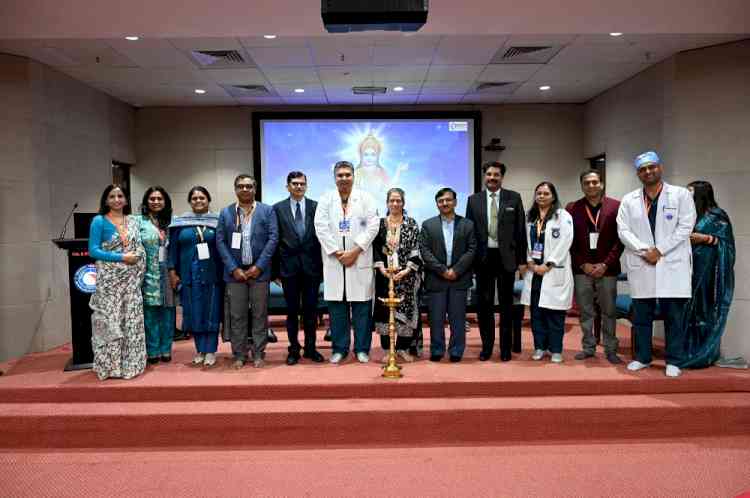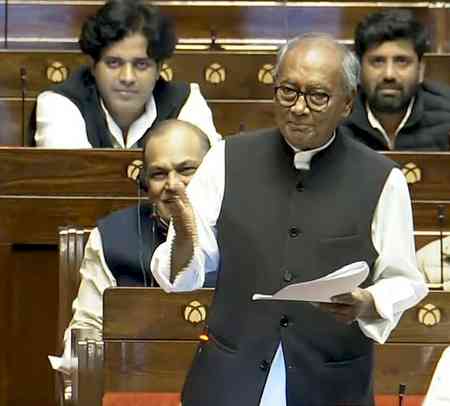Retiring doctors and medical specialists in Punjab get 3-month extension/re-employment amid covid crisis
The decision comes amid continued escalation in Covid cases in Punjab

Chandigarh: The Punjab Cabinet led by Chief Minister Captain Amarinder Singh on Wednesday gave its nod to grant three months Extension/Re-employment to Doctors and Medical Specialists w.e.f. October 1, 2020 to December 31, 2020, in view of the Covid crisis.
The decision comes amid continued escalation in Covid cases in Punjab, which currently accounts for more than 1.25 lakh of India’s nearly 72 lakh cases, with infections and deaths continuing to rise on a daily basis.
Though recruitment of doctors and para-medical staff is under way, this would take time and hence the state government has decided to continue availing the services of existing doctors/specialists for the time being.
PUNJAB HEALTH AND FAMILY WELFARE TECHNICAL (GROUP-C) SERVICE RULES, 2016 APPROVED
The Cabinet also approved amendments to the Punjab Health and Family Welfare Technical (Group-C) Service Rules, 2016, for reduction in the prescribed promotional quota, from 25% percent to 10% for the post of Staff Nurse, and in the sanctioned permanent 4216 posts of Staff Nurse to 3577. This will help provide employment opportunities to eligible candidates through direct recruitment against the vacant posts of Staff Nurse and 639 posts surrendered to the Department of Research and Medical Education.
The Cabinet also okayed amendments in these Rules for the post of Dialysis Technician of the Health and Family Welfare Department by including the technically qualified candidates who have passed B.Sc. (Dialysis Technician), in addition to the current educational qualification prescribed for direct recruitment.
TILLERS & OTHER CATEGORIES OCCUPYING LAND TO GET PROPRIETARY RIGHTS IN PUNJAB
Chandigarh: In a bid to confer proprietary rights upon certain categories of persons in occupation of agrarian land in the state, the Punjab Cabinet led by Chief Minister Captain Amarinder Singh on Wednesday approved ‘The Punjab Bhondedar, Butemar, Dohlidar, Insar Miadi, Mukarraridar, Mundhimar, Panahi Qadeem, Saunjidar, or Taraddadkar (Vesting of Proprietary Rights) Bill, 2020’.
Some 11231 persons in these categories, currently occupying private land spread across 4000 acres, will get the proprietary rights after payment of due compensation as per grades to be notified by the government shortly.
Giving details, an official spokesperson said the Cabinet has accepted the proposal of the Revenue Department to recognise 'Specified Categories' as persons recorded in revenue record as Bhondedar, Butemar, Dohlidar, Insar Miadi, Mukarraridar, Mundhimar, Panahi Qadeem, Saunjidar, or Taraddadkar for a period of at least 20 years on the appointed day, that is 1st of January 2020, and includes their predecessors and the successors-in-interest, before the coming into force of this Act.
These categories were left out at the time of vesting of proprietary rights to occupancy tenants under the Punjab Occupancy Tenants (Vesting of Proprietary Rights) Act, 1952 (Act 8 of 1953) and PEPSU Occupancy Tenants (Vesting of Proprietary Rights) Act, 1954 (Act 18 of 1954).
The measure is part of agrarian reforms to empower tillers of such land, who belong mostly to the economically and socially weaker sections of the society. These tenants have been in occupation of small parcels of land for several years and inherit their rights by succession from generation to generation. However, since they were not recorded as owners, they could neither access financial institutions for crop loans nor get calamity relief.
Pertinently, the Punjab Government has established the Revenue Commission to make existing laws, rules and procedures relating to land administration, transparent, simpler and people-friendly, in accordance with modern agriculture and non-agricultural practices.
PUNJAB GOVT TO IMPLEMENT CAPT AMARINDER’S PROMISE TO PROVIDE 1 LAKH GOVT JOBS BY FY2021-22 IN PHASED MANNER
Chandigarh: To fulfill Chief Minister Captain Amarinder Singh’s promise of providing one lakh government jobs to youth in the remaining term of his government, the Punjab Cabinet on Wednesday approved a State Employment Plan 2020-22, to fill vacant jobs in government departments, boards, corporations and agencies in a phased time-bound manner.
The recruitment will be done on central government pay scales, in line with the earlier cabinet decision to this effect.
A state-level function will be held on Independence Day, 2021 for formal joining of the selected candidates in Government posts during the year 2020-21. The function will be presided over by the Chief Minster.
As per the Plan approved by the Cabinet, all department may advertise their respective vacancies by October 31, 2020 to take forward the process of recruitment. The Administrative Departments would be solely responsible to ensure transparent and fair recruitment within the stipulated time schedule.
According to an official spokesperson, the Cabinet has also authorized the Chief Minister to make such amendments/additions/deletions as the situation may warrant, concerning various issues/proposals, after obtaining the advice of Departments of Personnel and Finance.
The Chief Minister had in March announced that 50,000 direct quota vacant government posts shall be filled in FY 2020-21 and another 50,000 posts in fiscal 2021-22, as a part of his flagship programme ‘Ghar Ghar Rozgar’.
Giving details of the Plan, the spokesperson said the Employment Generation, Skill Development & Training Department has collected the direct quota fill-able vacant posts, category-wise, from all the Administrative Departments. These include Group A (3959), Group B (8717) and Group C (36313), thus totaling 48,989 posts.
It was decided at the Cabinet meeting interviews would not be required for recruitment to Group-C posts. However, candidates selected based on tests shall present themselves for counselling, to be organized by the concerned department for physical verification of the candidates and their documents.
All the Engineering posts at the level of Junior Engineer (JE) and above in all departments/boards/corporations/authorities etc. shall be filled through Punjab Public Service Commission (PPSC) by organizing a common exam. In those cases where departments are yet to finalize the agency that would carry out the recruitment, they would be required to do so at
The competent level and go ahead with the recruitment process. However, if certain posts are to be withdrawn from the purview of the Staff Selection Board or the PPSC, it would be done only under exceptional circumstances by following the established process.
Regarding the direct quota vacant posts of Group-A and Group-B to be filled through Punjab Public Service Commission, the spokesperson said that the departments had been asked to refer these Group-A and Group-B fillable posts to PPSC for recruitment by October 31, 2020, and the recruitment process of these posts shall be completed by June 30, 2021. The Personnel Department has been directed to ensure implementation and compliance in this regard.
Meanwhile, the Employment Generation, Skill Development & Training Department would collect fillable direct quota vacancies for the financial year 2021-22 from all the departments category wise by June 30, 2021. The spokesperson further said that all the concerned departments whose vacancies are to be filled for the financial year 2021-22 would complete the process of advertisement regarding recruitment by October 31, 2021, and submit a certificate to this effect to the Employment Generation, Skill Development & Training Department on October 31, 2021.
PUNJAB CABINET OKAYS PROPRIETARY LAND RIGHTS FOR SLUM DWELLERS
Chandigarh: The Punjab Cabinet led by Chief Minister Captain Amarinder Singh on Wednesday gave approval to notify the Rules of the Punjab Slum Dwellers (Proprietary Rights) Act 2020 for the purpose of giving proprietary rights of land to slum dwellers, thus ensuring basic amenities for them.
According to the spokesperson of the Chief Minister’s Office, the Local Government department has already prepared 'BASERA - Chief Minister's Slum Development Programme' in accordance with Section 17 of the Punjab Slum Dwellers (Proprietary Rights) Act 2020, which outlines the guiding framework for the Urban Local Bodies (ULBs) to implement the Act. This programme envisages a ‘Slum-free Punjab’, with inclusive and equitable cities in which every citizen has access to basic civic services, social amenities and decent shelter.
Punjab has witnessed mushrooming of unauthorized slums on government land in recent decades as a result of influx of migrant population due to growth and development of the urban areas. This has presented the government with the challenge to provide basic amenities to all sections of the society residing in the city/towns including the slum dwellers. For sustainable growth of the cities, the management of slums in the urban areas of the state is a major concern, which the rules will help address to some extent.
TO BOOST QUALITY & FARMERS’ INCOME, CABINET APPROVES PUNJAB TISSUE CULTURE BASED SEED POTATO BILL, 2020
Chandigarh: In a major step towards boosting potato farmers’ income, the Punjab Government has decided to allow production of quality seed potato through tissue culture based technology, using aeroponics/net house facilities, along with the certification of seed potato and its successive generations.
The state cabinet, at a meeting chaired by Chief Minister Captain Amarinder Singh on Wednesday, approved the Punjab Tissue Culture Based Seed Potato Bill, 2020, to meet the demand of potato farmers for quality seed potato, and enable the development of the state as export hub for seed potato in the country.
The move would also help incentivize potato production, leading to greater diversification by bringing more area under potato crop cultivation, according to an official spokesperson.
Currently, potato crop is grown across an approximate area of one lakh hectares in the state, generating demand of 4 LMT of quality seed potato. However, there is negligible supply of quality seed potato from Central Potato Research Institute, Shimla. Some of the traders are currently illegally supply the poor quality seed potato by putting the mark of Punjab seed potato on it.
Besides demand from within the state, there is also demand for seed potato from outside the state, and since Punjab is bestowed with unique climatic conditions, it is favourable for virus/bacterial/pathogen free production of quality seed potato.
Incidentally, horticulture crops are emerging as an attractive alternative under the state government’s crop diversification programme, and even though they cover only 4.84% of total cropped area to produce around 73.50 LMT, their share to the total agriculture GDP of the state is 12.43%.


 cityairnews
cityairnews 











